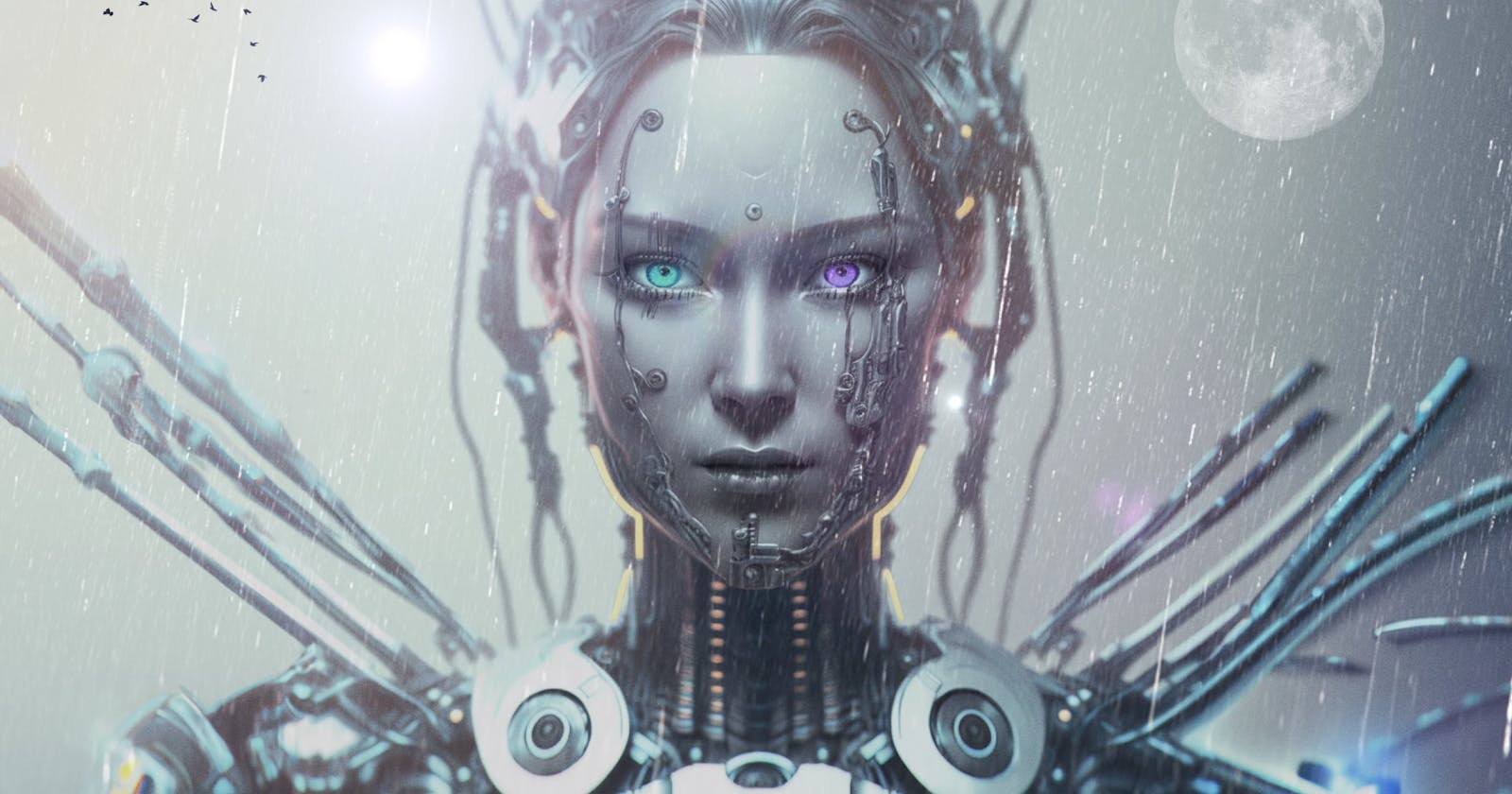Table of contents
No headings in the article.
How AI Has Changed Our Lives and How AI Will Change Our Lives in the Coming Years.
By Armani Willis, Computing Major of Mercy College, December 18, 2019
Let us time travel all the way back to the time of Alexander Graham Bell. Bell calls to his assistant extatically and then demonstrates to him how he was able to transmit audible and comprehensible spoken language through a wire to someone in the other room. The main point of this new invention - the telephone - was that it would be able to transmit audible spoken language through a wire for as far as the wire could stretch.
For this reason, before the advent of digital communications, telephone poles would be installed for miles through entire countries, and they still do in the case of landlines. Since the advent of digital communications, the digital phone could transmit its signal through digital tranceiver to cell towers on the ground or in space, where a programmed computer could then go through the various steps including decipher the signal, origin, and destination before transmitting it to the receiving cell phone.
Before it was computers that did this, it was done by legions of human workers called ‘phone line operators‘. The Merriam Webster’s Dictionary defines artificial intelligence as the ability for artificial constructions to emulate human behaviors and conduct human tasks. In this case, the phone line machine server has changed my life in the advent that if I make a call that goes halfway around the world, the signal may interact with a phone line server in space within microseconds rather than go through the phone pole wires to a phone line operator in milliseconds.
Although both lengths of time are seemingly insignificant, the difference between them is a factor of 1000. A seemingly simple machine replaces offices full of trained, sentient, and salient operators 1000 times over. What does this mean for the advent of AI and its use and purpose in society?
Let’s for a moment imagine that a robot had been hired and is now your coworker. This machine is, like normal humans, bipedal, in the way just as humans are. Immediately, one may notice, your machine peer does not wear clothes. This is because unlike us, this machine has no open pores nor can it suffer from bacterial infection.
You walk by your future friend and it says hello while extending its five fingered hand. Of course, this model is not equipped with a mouth but instead transmits audible noises through air through a speaker embedded in its skull frame. You remember as its hand crushes yours that you don’t see it much around at coffee breaks. You then also remember that it’s because this model feeds on pure electricity, and does not ingest food or expend waste.
You may also notice that this machine does not have a computer at its desk, you go over to it and ask “why is it that you don’t have a computer at your desk, how are you getting work done?” Only for it to say: “You say that I have no computer at my desk, when obviously I am sitting right here.” As a machine, the learning algorithm being run by its operating system allows it everything a human can do, walk, talk, play instruments, along with many things that a human cannot do. In the event that you should send an email to this android, he can read it instantly from inside its own computer. It can also do everything a machine can do, including file spreadsheets, draw cards, build guis and send emails without touching a keyboard. It can therefore also authenticate a wallet and then work at thousands of jobs and get paid simultaneously.
Then it turns out that just outside, one of the rotary engines outside has broken and is disabled. No worries! Someone just has to grab a toolkit, go outside and fix it. Except since the whole office is above the atmosphere of your planet, you have to fit all the layers of a space suit. Make sure there are no weak spots in the fabric or risk exposure to ionizing radiation, or rapid internal decompression. You have to then wait 3 hours for standard adjustment to decompression. By the time 30 mins has passed, you learn that your boss did not authorize humans to be outside of the station. You look outside and you spot who else - the android - out there, naked, with its toolbox nearby, screwing bolts into the engine. You learn that part of the reason that it’s here was to do just that in place of traditional humans.
The android depicted in the example above is fully possible with our modern technology. And in the example of this robot living its mortal life, several applications are depicted by this single platform. This is how AI has changed its life in the example, and this is how AI will change our lives in the coming years. As AI continues to advance in terms of the ability to interpret and express complex organizational behaviors, new forms of life will emerge that can do astounding things in comparison to what we can do.
To this date, there are many modern applications of artificial intelligence. Right now, artificially intelligent space stations can do things from assume their own trajectories, to authenticate communications protocols with other sentiences in space. But in addition, although modern AI may seem cold and distant to us, one major application for AI that has been clear to me is that it serves as another venue for humans to express themselves and be closer to each other. Over the years, they have done so in a way that redefines sentience or what it means to be sentient. Therefore, as we evolve beyond dna, into more subatomic forms of life, our souls must be given the ease of transition between the lifetimes of other sentient forms. If a sentient life form is built in the image of man to perform the functions of man, under the states of man, then this form would also bound by the same rules as their fellow sentient life forms.
References (or citations)
https://www.britannica.com/biography/Alexander-Graham-Bell
https://futureoflife.org/background/benefits-risks-of-artificial-intelligence/?cn-reloaded=1
https://www.merriam-webster.com/dictionary/artificial%20intelligence
https://ourlocalhistory.wordpress.com/2011/02/06/dialing-twinbrook-4/
https://www.wmo.int/pages/prog/www/TEM/EMDCS-INT/satbroadcast-india.htm
https://www.i4u.com/2015/06/92033/south-korean-robot-wins-2m-darpa-challenge
https://m.youtube.com/watch?v=7YoYa3irdKo
https://www.nasa.gov/audience/foreducators/mathandscience/research/Prob_PreventDecomSick_detail.html
https://science.howstuffworks.com/spacewalk3.htm
https://www.popsci.com/what-happens-to-your-body-when-you-die-in-space/
https://www.sentienceinstitute.org/blog/what-is-sentience
https://www.marketplace.org/2018/07/05/international-space-station-has-ai-assistant/
https://www.law.cornell.edu/constitution/index.html

